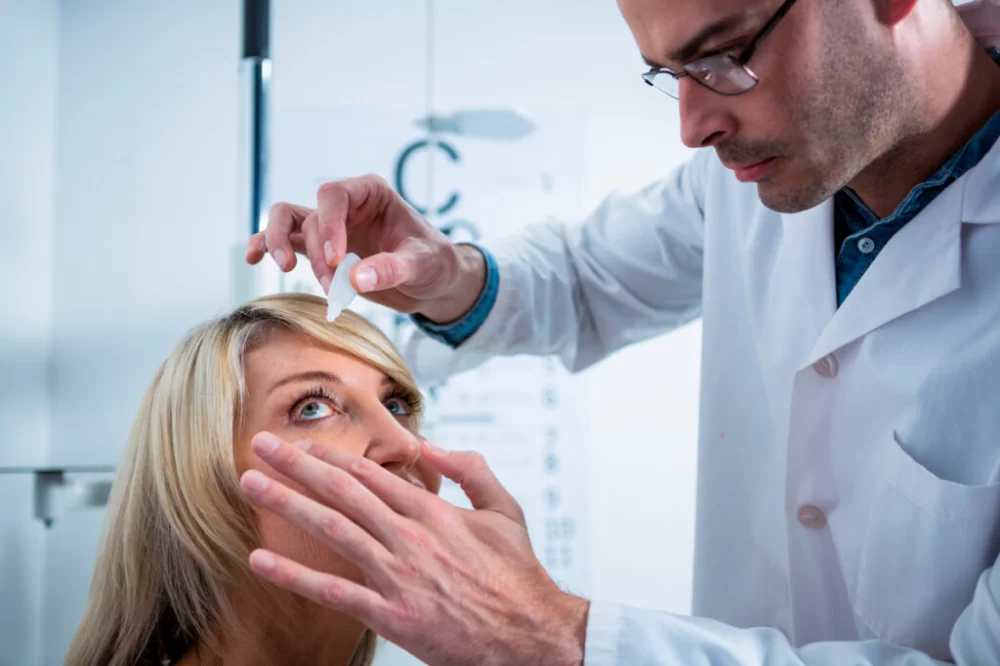
- Finding the Right Eye Doctor for Diabetic Eye Care
- The Importance of Regular Eye Exams for People with Diabetes
- Specialized Care and Treatment Options for Diabetic Eye Conditions
- Personal Experience and Trusted Resources for Diabetic Eye Care
Finding the Right Eye Doctor for Diabetic Eye Care
When managing diabetes, finding an eye doctor who specializes in diabetic eye care is essential to preserve vision and detect early complications. Diabetic eye specialists are trained to recognize subtle signs of diabetic retinopathy, macular edema, and other diabetes-related eye conditions that could lead to vision loss if left untreated.
One practical approach to locate a trusted eye care professional is to search for ophthalmologists or optometrists with experience in diabetic retinopathy screening. These specialists use advanced imaging techniques such as optical coherence tomography (OCT) and digital retinal photography to monitor changes in the retina.
Many patients overlook the importance of choosing a provider knowledgeable in diabetes-related eye care. By visiting dedicated clinics or services, like those listed on Eye Docs, patients can access specialists who understand the complexities of diabetic eye conditions and tailor treatments accordingly. Eye Docs offers a curated directory of professionals and services that prioritize diabetic eye health.
How to Verify an Eye Doctor's Expertise
Look for credentials such as board certification in ophthalmology and additional training in diabetic eye diseases. Patient reviews and professional affiliations with diabetes associations can also indicate a provider’s expertise. Additionally, confirming that the practice offers comprehensive diabetic eye exams is critical, as these exams differ from routine eye checks.
The Importance of Regular Eye Exams for People with Diabetes
Regular diabetic eye exams are the cornerstone of preventing severe vision problems. Diabetes can cause damage to the blood vessels in the retina, a condition called diabetic retinopathy, which often develops silently without noticeable symptoms.
Experts recommend that people with diabetes undergo a comprehensive dilated eye exam at least once a year. During these visits, the eye doctor evaluates retinal health and checks for early signs of disease progression. Early detection through these exams allows timely intervention, preventing permanent vision loss.
Case Study: Early Detection Saving Vision
Consider the story of Mark, a 52-year-old with type 2 diabetes, who experienced no vision symptoms until his annual diabetic eye exam revealed early-stage diabetic retinopathy. Thanks to prompt treatment coordinated by his specialist, Mark avoided serious complications that could have led to blindness. His case highlights why finding an expert eye doctor for diabetic eye care is life-changing.
Specialized Care and Treatment Options for Diabetic Eye Conditions
Once a diabetic eye condition is diagnosed, the course of treatment depends on the severity and specific issues found. Treatments range from laser therapy, anti-VEGF injections to reduce swelling, to surgical procedures for advanced cases.
Choosing an eye doctor who can offer these advanced treatments or refer to specialized centers is crucial. Diabetic eye care requires a multidisciplinary approach that sometimes involves endocrinologists and diabetes educators to optimize overall health and eye outcomes.
Understanding Treatment Advances
Newer treatment methods have significantly improved prognosis for diabetic patients. For example, anti-VEGF injections target abnormal blood vessel growth and have become a first-line treatment for diabetic macular edema. Patients should seek out clinics that stay updated on these innovations.
Personal Experience and Trusted Resources for Diabetic Eye Care
Many people find it reassuring to hear firsthand experiences or trusted recommendations when navigating diabetic eye care. Online forums and patient testimonials often emphasize how critical finding a knowledgeable eye doctor is.
Eye Docs is an excellent resource to connect with providers offering expert diabetic eye care services. Beyond just listings, the platform can guide you to personalized options suited to your needs, whether it’s diagnostic exams or treatment facilities.
Building Trust with Your Eye Care Provider
Establishing a relationship with your eye doctor involves open communication and trust. Don’t hesitate to ask questions about their experience with diabetic patients, diagnostic technologies they use, and follow-up protocols. Your proactive approach combined with expert care will greatly improve your long-term eye health.








